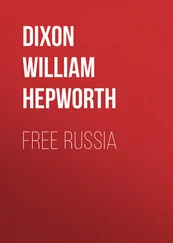Nikolai Nekrasov - Who Can Be Happy and Free in Russia?
Здесь есть возможность читать онлайн «Nikolai Nekrasov - Who Can Be Happy and Free in Russia?» весь текст электронной книги совершенно бесплатно (целиком полную версию без сокращений). В некоторых случаях можно слушать аудио, скачать через торрент в формате fb2 и присутствует краткое содержание. Год выпуска: 2005, Жанр: Поэзия, на английском языке. Описание произведения, (предисловие) а так же отзывы посетителей доступны на портале библиотеки ЛибКат.
- Название:Who Can Be Happy and Free in Russia?
- Автор:
- Жанр:
- Год:2005
- ISBN:нет данных
- Рейтинг книги:3 / 5. Голосов: 1
-
Избранное:Добавить в избранное
- Отзывы:
-
Ваша оценка:
- 60
- 1
- 2
- 3
- 4
- 5
Who Can Be Happy and Free in Russia?: краткое содержание, описание и аннотация
Предлагаем к чтению аннотацию, описание, краткое содержание или предисловие (зависит от того, что написал сам автор книги «Who Can Be Happy and Free in Russia?»). Если вы не нашли необходимую информацию о книге — напишите в комментариях, мы постараемся отыскать её.
Who Can Be Happy and Free in Russia? — читать онлайн бесплатно полную книгу (весь текст) целиком
Ниже представлен текст книги, разбитый по страницам. Система сохранения места последней прочитанной страницы, позволяет с удобством читать онлайн бесплатно книгу «Who Can Be Happy and Free in Russia?», без необходимости каждый раз заново искать на чём Вы остановились. Поставьте закладку, и сможете в любой момент перейти на страницу, на которой закончили чтение.
Интервал:
Закладка:
But for my part, I don't want 350
To play at buffoon.
For how many years
Have I stood on the threshold
And bowed to the Barin?
Enough for my pleasure!
I said, 'If the commune
Is pleased to be ruled
By a crazy Pomyéshchick
To ease his last moments
I don't disagree, 360
I have nothing against it;
But then, set me free
From my duties as Elder.'
"The whole matter nearly
Fell through at that moment,
But then Klímka Lávin said,
'Let me be Elder,
I'll please you on both sides,
The master and you.
The Lord will soon take him, 370
And then the fine hayfields
Will come to the commune.
I swear I'll establish
Such order amongst you
You'll die of the fun!'
"The commune took long
To consider this offer:
A desperate fellow
Is Klímka the peasant,
A drunkard, a rover, 380
And not very honest,
No lover of work,
And acquainted with gipsies;
A vagabond, knowing
A lot about horses.
A scoffer at those
Who work hard, he will tell you:
'At work you will never
Get rich, my fine fellow;
You'll never get rich,— 390
But you're sure to get crippled!'
But he, all the same,
Is well up in his letters;
Has been to St. Petersburg.
Yes, and to Moscow,
And once to Siberia, too,
With the merchants.
A pity it was
That he ever returned!
He's clever enough, 400
But he can't keep a farthing;
He's sharp—but he's always
In some kind of trouble.
He's picked some fine words up
From out of his travels:
'Our Fatherland dear,'
And 'The soul of great Russia,'
And 'Moscow, the mighty,
Illustrious city!'
'And I,' he will shout, 410
'Am a plain Russian peasant!'
And striking his forehead
He'll swallow the vodka.
A bottle at once
He'll consume, like a mouthful.
He'll fall at your feet
For a bottle of vodka.
But if he has money
He'll share with you, freely;
The first man he meets 420
May partake of his drink.
He's clever at shouting
And cheating and fooling,
At showing the best side
Of goods which are rotten,
At boasting and lying;
And when he is caught
He'll slip out through a cranny,
And throw you a jest,
Or his favourite saying: 430
'A crack in the jaw
Will your honesty bring you!'
"Well, after much thinking
The commune decided
That I must remain
The responsible Elder;
But Klímka might act
In my stead to the Barin
As though he were Elder.
Why, then, let him do it! 440
The right kind of Elder
He is for his Barin,
They make a fine pair!
Like putty his conscience;
Like Meenin's [41] Meenin—a famous Russian patriot in the beginning of the seventeenth century. He is always represented with an immense beard.
his beard,
So that looking upon him
You'd think a sedater,
More dutiful peasant
Could never be found.
The heirs made his kaftan, 450
And he put it on,
And from Klímka the 'scapegrace'
He suddenly changed
Into Klím, Son-of-Jacob, [42] It is a sign of respect to address a person by his own name and the name of his father.
Most worthy of Elders.
So that's how it is;—
And to our great misfortune
The Barin is ordered
A carriage-drive daily.
Each day through the village 460
He drives in a carriage
That's built upon springs.
Then up you jump, quickly,
And whip off your hat,
And, God knows for what reason,
He'll jump down your throat,
He'll upbraid and abuse you;
But you must keep silent.
He watches a peasant
At work in the fields, 470
And he swears we are lazy
And lie-abed sluggards
(Though never worked peasant
With half such a will
In the time of the Barin).
He has not a notion
That they are not his fields,
But ours. When we gather
We laugh, for each peasant
Has something to tell 480
Of the crazy Pomyéshchick;
His ears burn, I warrant,
When we come together!
And Klím, Son-of-Jacob,
Will run, with the manner
Of bearing the commune
Some news of importance
(The pig has got proud
Since he's taken to scratching
His sides on the steps 490
Of the nobleman's manor).
He runs and he shouts:
'A command to the commune!
I told the Pomyèshchick
That Widow Teréntevna's
Cottage had fallen.
And that she is begging
Her bread. He commands you
To marry the widow
To Gabriel Jóckoff; 500
To rebuild the cottage,
And let them reside there
And multiply freely.'
"The bride will be seventy,
Seven the bridegroom!
Well, who could help laughing?
Another command:
'The dull-witted cows,
Driven out before sunrise,
Awoke the Pomyéshchick 510
By foolishly mooing
While passing his courtyard.
The cow-herd is ordered
To see that the cows
Do not moo in that manner!'"
The peasants laugh loudly.
"But why do you laugh so?
We all have our fancies.
Yakútsk was once governed,
I heard, by a General; 520
He had a liking
For sticking live cows
Upon spikes round the city,
And every free spot
Was adorned in that manner,
As Petersburg is,
So they say, with its statues,
Before it had entered
The heads of the people
That he was a madman. 530
"Another strict order
Was sent to the commune:
'The dog which belongs
To Sofrónoff the watchman
Does not behave nicely,
It barked at the Barin.
Be therefore Sofrónoff
Dismissed. Let Evrémka
Be watchman to guard
The estate of the Barin.' 540
(Another loud laugh,
For Evremka, the 'simple,'
Is known as the deaf-mute
And fool of the village).
But Klímka's delighted:
At last he's found something
That suits him exactly.
He bustles about
And in everything meddles,
And even drinks less. 550
There's a sharp little woman
Whose name is Orévna,
And she is Klím's gossip,
And finely she helps him
To fool the old Barin.
And as to the women,
They're living in clover:
They run to the manor
With linen and mushrooms
And strawberries, knowing 560
The ladies will buy them
And pay what they ask them
And feed them besides.
We laughed and made game
Till we fell into danger
And nearly were lost:
There was one man among us,
Petrov, an ungracious
And bitter-tongued peasant;
Интервал:
Закладка:
Похожие книги на «Who Can Be Happy and Free in Russia?»
Представляем Вашему вниманию похожие книги на «Who Can Be Happy and Free in Russia?» списком для выбора. Мы отобрали схожую по названию и смыслу литературу в надежде предоставить читателям больше вариантов отыскать новые, интересные, ещё непрочитанные произведения.
Обсуждение, отзывы о книге «Who Can Be Happy and Free in Russia?» и просто собственные мнения читателей. Оставьте ваши комментарии, напишите, что Вы думаете о произведении, его смысле или главных героях. Укажите что конкретно понравилось, а что нет, и почему Вы так считаете.











